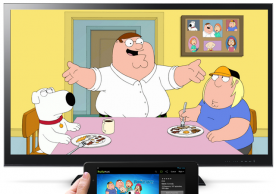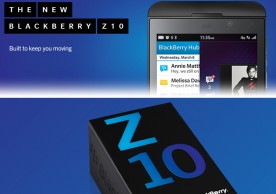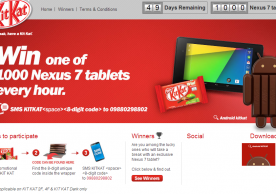AMD has broken away from Windows exclusivity by announcing plans to support Android and Chrome as well, which could lead to cheaper, low-power, Android PCs.
One could interpret the move as a clear sign that Microsoft's new Windows 8 operating system is struggling and failing, or one could simply consider it good news and don't think much of it.
It is, however, a very big deal, as AMD chips are currently exclusive to Windows. AMD apparently has bigger plans than sticking with the ailing operating system and is now looking to expand to Android and Chrome OS horizons. Google Chromebooks currently run ARM and Intel processors, but AMD's entrance could be a great gamechanger.
According to PCWorld, AMD wants to support both of Google's operating systems. That doesn't mean it will ditch Microsoft's Windows platform. It will simply break those exclusive ties. In other words, AMD and Microsoft are now in an open relationship, so to speak.
"We are very committed to Windows 8," said Lisa Su, senior vice president and general manager of global business units at AMD, as cited by PCWorld. "We think it's a great operating system, but we also see a market for Android and Chrome developing as well."
While AMD previously stated that it had no plans to support Android and was instead "betting heavily on Windows 8," it seems the company changed its mind and rethought its alliances.
"I think Android and Chrome tend to be in the entry form factors - the tablets, the low-end clamshells," Su further explained.
While she made no comment on when AMD-powered Android tablets would actually hit the market, Su did say that AMD and developers are currently working on Android apps for AMD chips.
To be honest, Windows 8 is not exactly the most popular operating system and this, in turn, can and does affect all parties involved. AMD, for instance, worked really hard on its Z-01 and Z-60 tablet chips and to what end? The hardware in question was tied to Windows 8 and Windows 8 machines are by no means flying off the shelves. In other words, as good as AMD's chips may be, the market has a very big say in their success.
Venturing into Android and Chrome OS territory, on the other hand, could open a whole new chapter and lead to great things to come. It could create new markets for AMD's low-energy chips and that, in turn, could lead to an exciting new computing experience. Furthermore, the move could pave the way to low-cost, low-power PCs running on Android or Chrome OS, challenging the ailing Windows 8 OS even more.
most read
related stories
more stories from What's Hot
-
Grand Theft Auto Online (GTA Online) launch issues: Rockstar details bug fix status
Rockstar Games has acknowledged the most common GTA Online launch issues and detailed the bug fix status for each problem it's currently working on.
ernest hamilton -
Target announces Brigthspot prepaid mobile service to debut on Oct. 6
Target has announced its new prepaid mobile service, Brightspot, which will debut on Sunday, Oct. 6.
ernest hamilton -
Hulu Plus now works with Google’s Chromecast streaming dongle
Hulu has added support for Google's Chromecast streaming dongle, allowing Hulu Plus users to 'cast' video directly to Chromecast.
ernest hamilton -
Grand Theft Auto (GTA) Online finally goes live
The much-awaited Grand Theft Auto (GTA) Online mode has finally gone live, unfolding a whole interconnected universe.
ernest hamilton -
BlackBerry blames $935 million hit on the BlackBerry Z10 – Q2 fiscal results are not pretty
BlackBerry has posted its Q2 fiscal results and blames a $935 million hit on 'Z10 Inventory Charge'
ernest hamilton -
Android KitKat contest reaches India with a chance to win the new Nexus 7 (2013)
The KitKat contest has now reached India, bringing promotional packages with the chance to win a new Nexus 7 (2013).
ernest hamilton -
Google Talk (Gchat) messages reach wrong recipients – Careful what you say now
Google Talk has been sending messages to the wrong recipients, raising some serious privacy concerns.
ernest hamilton -
Grand Theft Auto V (GTA 5) makes whopping $800M on launch day, dethroning Call of Duty: Black Ops 2
Grand Theft Auto V publisher Take-Two has announced that the new GTA 5 made a whopping $800 million on launch day, breaking the record previously set by Call of Duty: Black Ops 2.
ernest hamilton

















